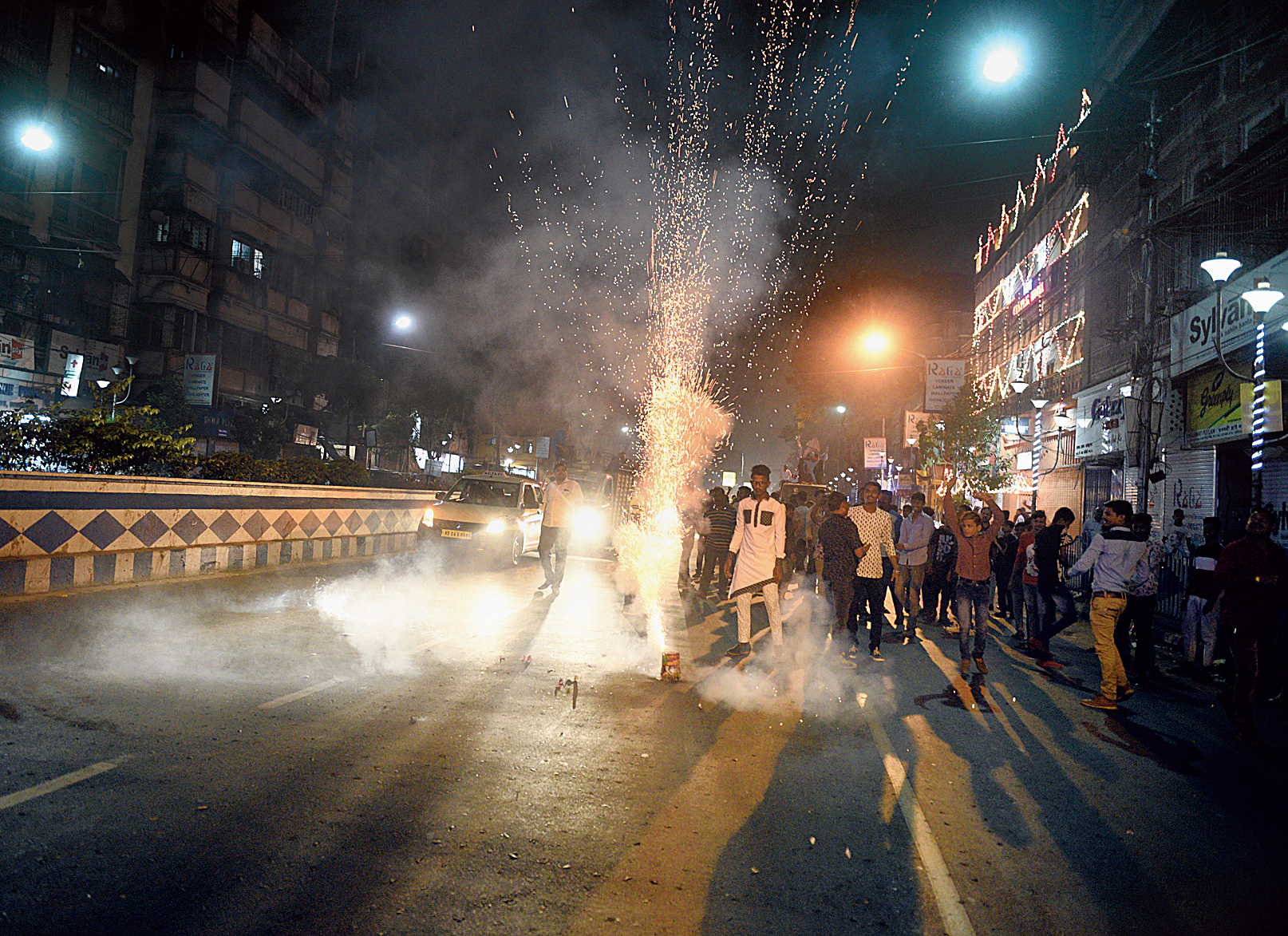Upholding the law seems to pose a serious threat to life and limb. Haradhan Mal, a senior citizen, was beaten to death in Murshidabad after he protested against the loud music that was being played at a pandal on the occasion of Saraswati Puja. Unlike his opponents, it was Mr Mal who was doing what every law-abiding citizen is expected to do. The law prohibits the use of microphones or loudspeakers 72 hours before the commencement of board examinations. Mr Mal’s nephew was preparing for the Madhyamik exams on that fateful night. The victim thus had every right to take up the matter with his assailants — one of whom is a former army man — who were acting against the law.
Mr Mal’s lynching is revealing in several ways. Personal relationships seem to be imploding. There is a marked propensity to settle differences forcefully. Civil conversations, the hallmark of a mature democracy, were once potent in arriving at a consensus. Does this no longer hold true for the republic? The murder is also indicative of an eagerness on the part of hoodlums to take the law in their own hands with the intention of mangling it. What encourages such defiance? Could it be that the reluctance of the administration to implement strictly existing legislations instils a sense of impunity among erring citizens? It must be pointed out that in this instance the police had not done anything to prevent the use of loudspeakers even though the hour was late. Arrests were made, but only after a lynching had taken place. Incidentally, the state unit of the Bharatiya Janata Party had requested the Supreme Court for a relaxation of the ban on microphones, a plea that the highest court turned down, keeping in mind the interests of the children appearing for board examinations. The apex court, as is to be expected, has its heart in the right place. But the same cannot be said of politicians. Does the subtle prodding by politicians to get around the law lie at the heart of the all-too-apparent disregard for statutes? This cannot bode well for a republic founded on the doctrine of the rule of law. Sound pollution is not merely a law-and-order problem. It is emblematic of a rot in the moral fibre. The administration, much like Mr Mal’s attackers, had blood on its hands.












